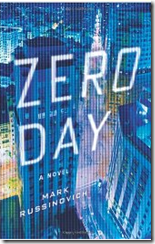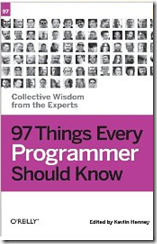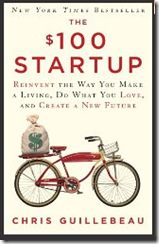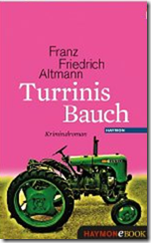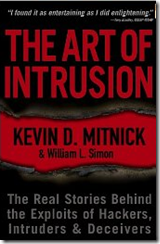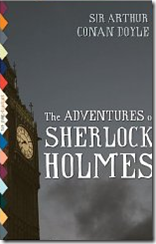What I read on my summer vacation
August 22, 2012As I mentioned in a previous blog post, my wife and I spent this years’ summer vacation in Italy. The vacation was planned as a mainly relaxing one involving long days at the beach. This gave me the chance of catching up on my reading backlog and so brought a couple of books (some of them on my Kindle) with me.
Zero Day
This cyber thriller was written by Mark Russinovich, author of the SysInternals tools, Microsoft employee and industry expert when it comes to the topic of malicious software and spyware. In his first novel he uses exactly this expertise on software systems, their weak spots and possible exploits by malware attacks and cleverly develops an absorbing tale about international (cyber) terrorism, computer viruses and the actual threat to human lives they pose. While this is a fascinating and thrilling story to enjoy, it actually makes the reader think and consider the dangers which we are exposed to by neglecting or underestimating the potential effects of cyber terrorism. Recapitulating, this novel was a pleasure to read and I am eagerly looking forward to the author’s next novel “Trojan Horse”, which will be published in beginning of September.
97 Things Every Programmer Should Know
This book turned out to be among the most interesting reads lately concerning the topics of professional software development, patterns and practices. More than 70 experienced industry experts (e.g. Michael Feathers) share practical tips and insights in development practices they themselves consider useful and worth knowing about. Each of the 97 tips is limited to two pages and therefore has to cover its topic in a concise and pragmatic way. Given that, that book is easily read cover to cover within a few hours but you will probably find yourself spending more time with it: Considering the tips and practices outlined by the authors, comparing it with your own practices, extending practices with your own ideas or also dismissing some of them. Essentially, this book makes you reflect on your own development practices and processes used by you or your team, and that is its great strength.
Alltag in Amerika: Leben und arbeiten in den USA
[German] While I have no immediate plans of immigrating into the USA, I was reading this book simply out of curiosity and to learn about all the little steps and hurdles one would have to overcome when doing so. I expected this book to be a kind of travel journal giving insights into the personal experiences of an immigrant, but it turned out to be completely different – in a good way! The author collected facts and data about all possible situations and challenges one could think of when starting a new life and career in the USA. From the transportation of pets to buying a house, this book covers basically everything – an awesome piece of research work! Therefore, this book is not necessarily meant to be read cover to cover (you can do that of course, and it’s actually worth doing it) but it can also solve as reference when thinking about certain situations or challenges an immigration may impose.
The $100 Startup
“Reinvent the Way You Make a Living, Do What You Love, and Create a New Future”.
Starting with the positive aspects, this book is really inspiring and encourages the reader to think about new ideas, chances and possibilities. The author focuses mainly on the topic of - what he calls - “micro businesses”, meaning startup businesses which do not involve big initial financial investments (less than $100 as the title suggests) but rather investments of time and work. The general motive is developing a sustainable income from activities and projects that you really care about and are willing to put effort into. In a sentence: “making your hobby your work”. This is underlined by different case studies of real life examples collected by the author. The downside to this book is that while it is initially really innovative and inspiring it starts becoming redundant and repetitive after a while. It’s like that after about a 100 pages the author ran out of ideas but determined to add another 100. [Is it just me or is that a familiar pattern with guidebooks?]
Turrinis Bauch
[German / Austrian] The book’s author Franz Friedrich Altmann lives in a place in Upper Austria, in immediate proximity of the place where I was born and grew up as a kid. Also, the author’s stories are set in the rural locations of Upper Austria, where life and people are just … a bit different. Knowing these places and the kind of people he makes references to made this book a hilarious experience having caused me to laugh out loud not just once while reading it. Even though I just may be the perfect target audience for this book given my origin, I surely can recommend that books to everyone else who enjoys a good laugh and well written genre-mixture of crime and comedy.
The Art of Intrusion
“The Real Stories Behind the Exploits of Hackers, Intruders and Deceivers”
This book written by hacker legend Kevin Mitnick seemed very promising and I was really looking forward to reading it. Unfortunately, it did not meet my expectations at all. Here’s why: as the title suggests, the book is comprised of several short stories about different incidents of exploits and hacks that allegedly actually happened. While this seems quite interesting and entertaining at first, these stories are all very similar and I got the impression of reading the same story all over again. Also, Kevin Mitnick’s remarks throughout the stories, in which he comments on the exploits and gives advice on possible countermeasures, are very redundant too and even he repeats himself throughout the whole book. Further, the book’s quality in terms of spelling and printing errors was really bad and it contributes the impression of a carelessly “thrown-together” publication. My recommendation is definitely to skip on this book.
The Adventures of Sherlock Holmes
Being a huge fan of the BBC series Sherlock I figured that I would probably be fun reading the classic Sherlock Holmes stories again for the series containing many references to the classic version. Even though I read these stories as a kid (the German translations) I have already forgotten about most of them and it turned to be a really entertaining read. Also the language used in this books was really interesting for me because many of the English words used in the stories are not really common any more and it had to look them up (the dictionary feature of the Kindle comes in very handy in these cases).
